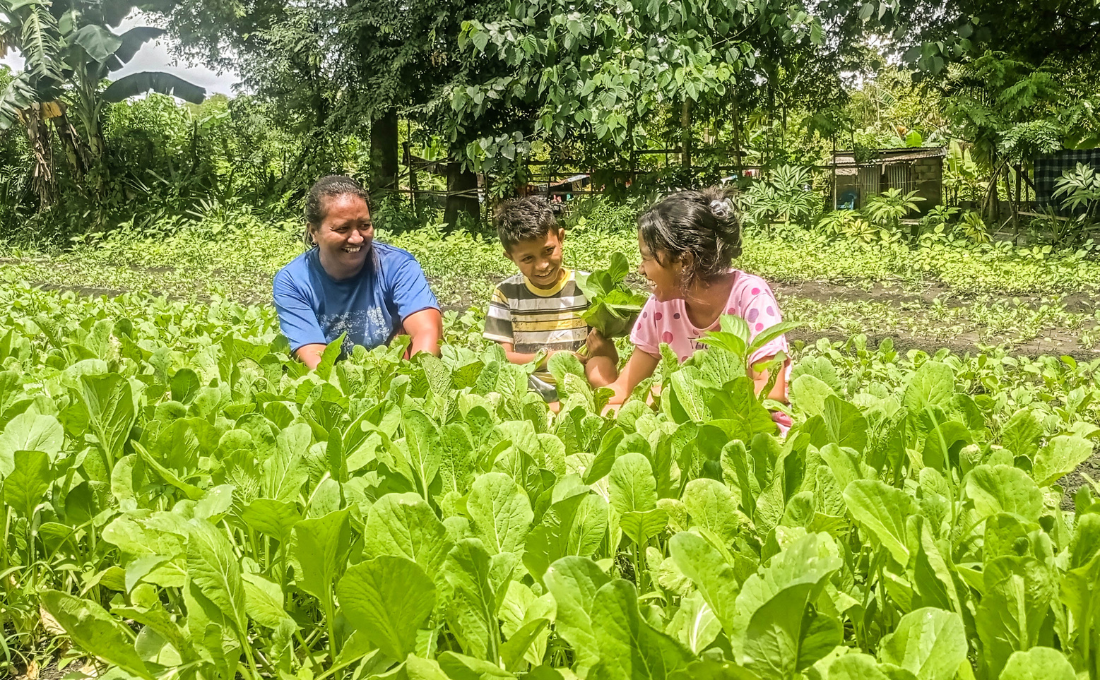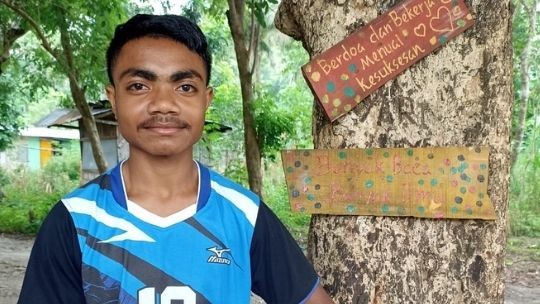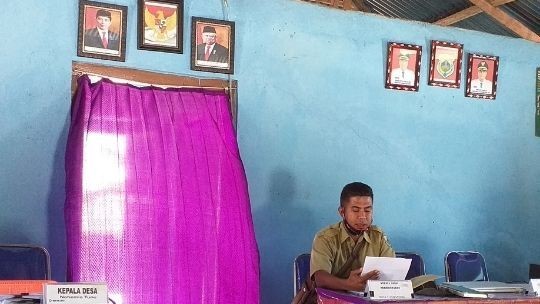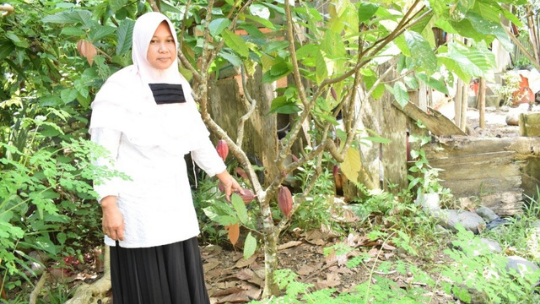Nutrition Garden Training Empowers Community in Kupang Regency

A nutrition garden training in a village in Kupang Regency ended just as the rainy season and rice planting season arrived. The training was facilitated by WVI in partnership with GMIT (Gereja Masehi Injili di Timor). This season makes it difficult for many participants to directly work on the nutrition garden optimally. However, this is not the case for Tildis (39), a woman who works as a vegetable farmer and is active as a community volunteer and Posyandu cadre.
Tildis has long been paying attention to the nutritional needs of children in her village. So, she was one of the most enthusiastic participants in the nutrition garden training. Especially because before taking the training, Tildis always failed to grow mustard greens, especially in the rainy season. But after learning the techniques of vegetable plant care, she was able to plant several beds of mustard greens and water spinach. Her first nutrition garden harvest was very abundant. After meeting her family's vegetable consumption needs, Tildis was able to share vegetables with her neighbors and even sell them. She uses the proceeds from the sale to buy tomato seeds. Now there is no more empty land in her yard.
Even though her nutrition garden was successful, Tildis was still burdened by the unkempt nutrition gardens of other families. In fact, many families around her need attention in meeting the nutritional needs of toddlers. She also realized this when she was on duty as a cadre at the Posyandu. She didn't want to only think about her family's life but also the rights of children in her village. Therefore, Tildis was motivated to create a communal nutrition garden in front of the Posyandu. Tildis also invited participation from other community volunteers, Posyandu cadres, and mothers of toddlers.
Initially, the vegetable garden in the Posyandu yard only contained mustard greens and water spinach. Now, the garden is starting to be filled with various spices and medicinal plants. The good work started by a few people has grown and has been felt by 60 children and toddlers in the village. "I am very happy to have participated in the nutrition garden training organized by GMIT and WVI, because now parents don't need to spend money to buy vegetables anymore. Children are also healthier because these vegetables don't use chemical fertilizers," she said with joy.
Author: Ayi Rambu Kareri Emu (Field facilitator from GMIT, WVI’s partner in Kupang)
Editor: Mariana Kurniawati (Communication Executive)



